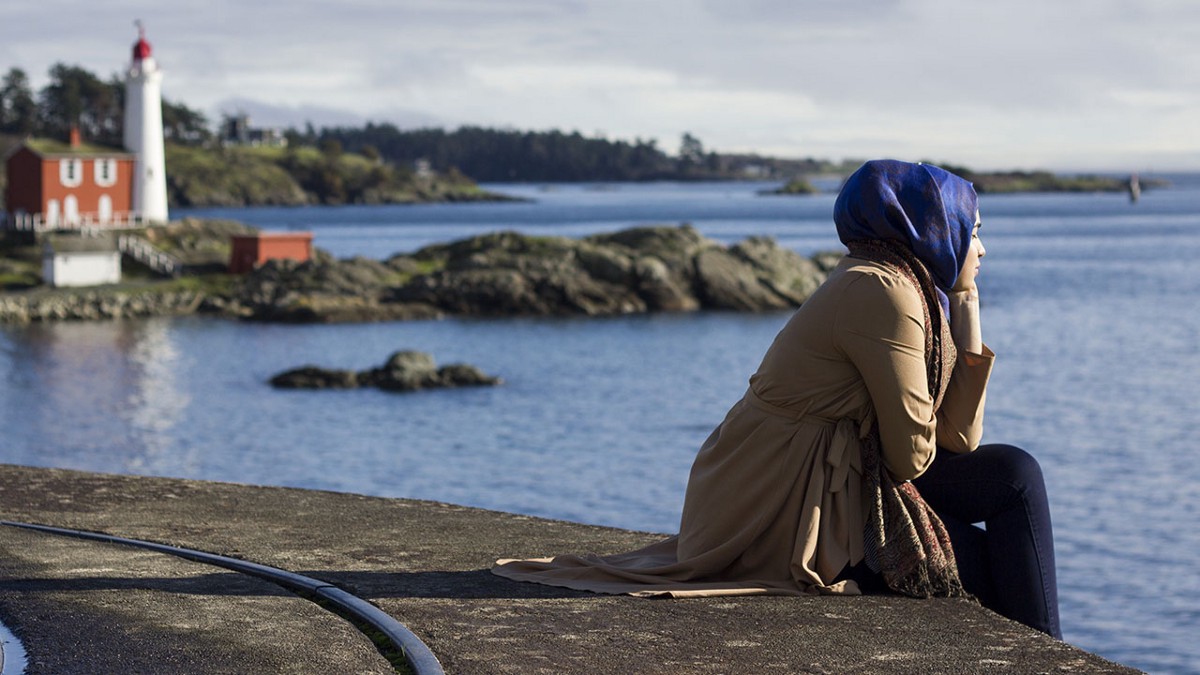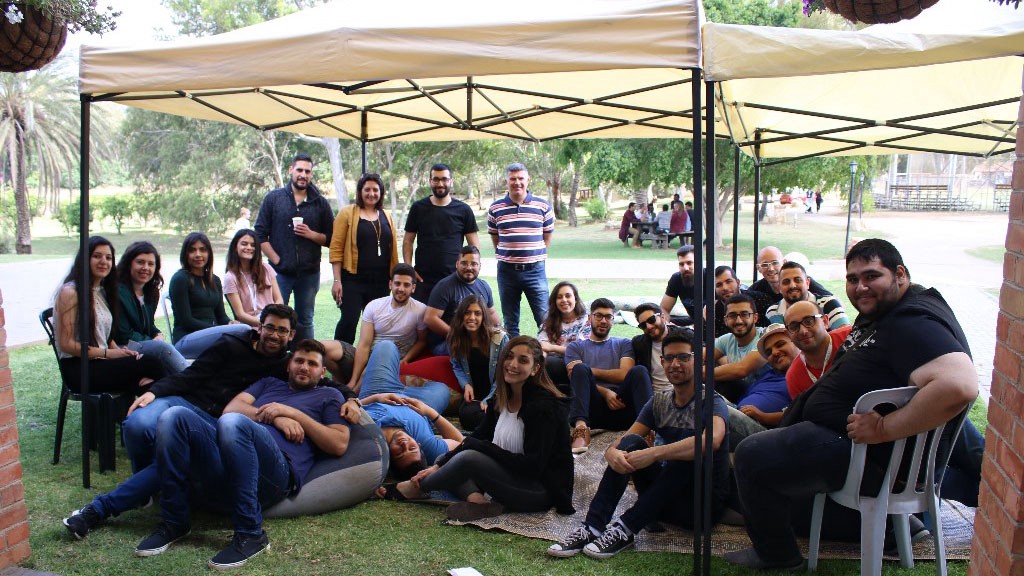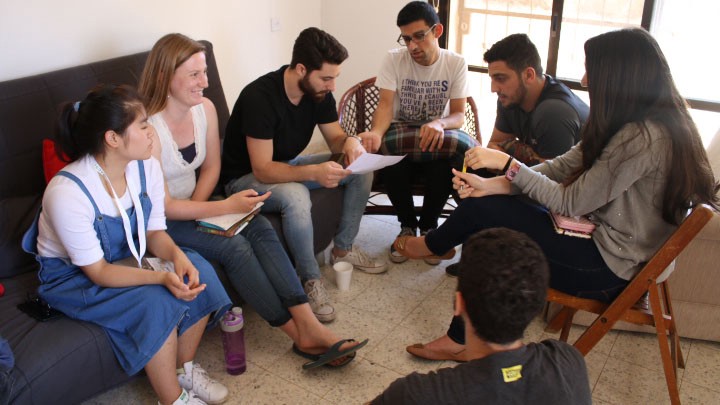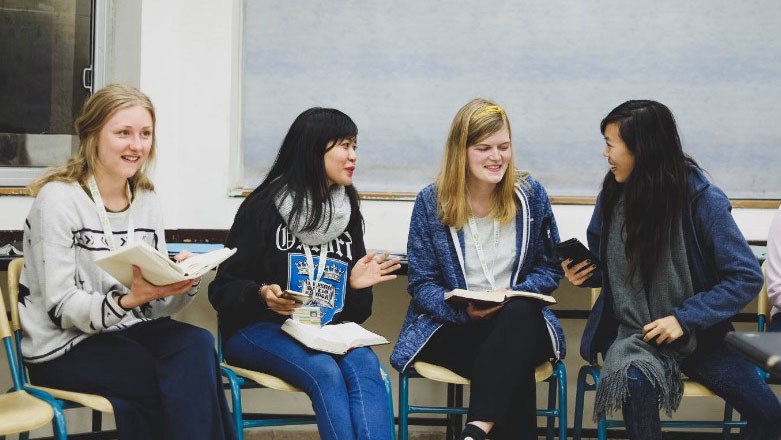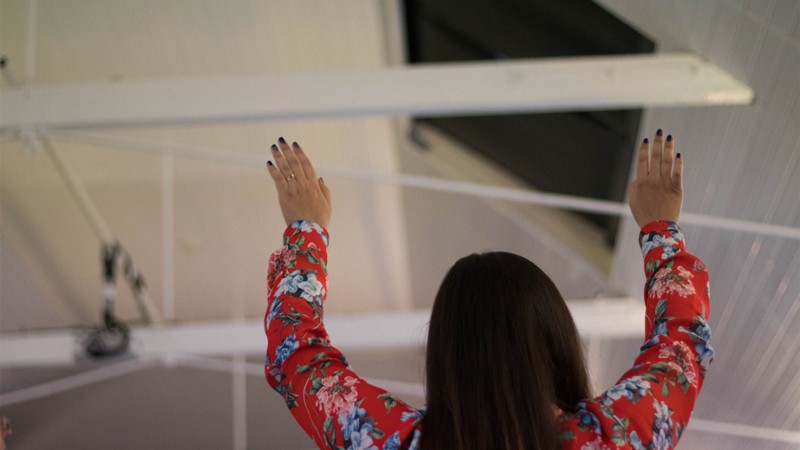Should I return home?
It’s wonderful when international students turn to Christ. But that is only the beginning. Many face huge challenges when they finish their studies — particularly those who come to faith from a Muslim background. It’s an agonising decision: stay here, in a foreign land, apart from their loved ones; or go back and face a life of alienation, rejection and severe persecution — or even death. There is no easy option.
Rahab Chandler, an international student worker in the UK, shares two stories of Muslim-background believers who came to faith during their PhD studies.
Hadija’s journey
Hadija* and I met through a mutual friend. She was from a Middle Eastern country, studying here for a PhD. I invited her to our home and to one of our international cafés, and introduced her to a few Christian friends. Over the course of the next few years, Hadija and I met regularly. She was only culturally Muslim but was nevertheless committed to certain Islamic beliefs. We would talk at length about her studies and I would share with her what the Bible says regarding the issues. Her interest grew, but she showed no desire to embrace the Christian faith.

Over time she began to attend church, where she heard good teaching and was drawn into the church community. Things started to change. Our weekly talks together deepened. I could see how close she was. One Sunday, on hearing a talk about the second coming of Christ, she could not hold back any longer. She professed her belief in the gospel and her desperation to be put right with God. Hadija was baptised a couple of months later, pleading with others to put their trust in Christ as she shared her moving testimony.
Where do I belong?
Hadija has grown wonderfully. But she has not yet told her family about her new faith. Her concern is more for them than for herself. She knows that if her wider family were to find out, her immediate family would be in danger. She says that she is willing to die for Christ; but what is hardest is that her family would suffer for something that they do not understand. Aside from the physical danger, there is also the issue that if she were to return, she would be obliged to marry a Muslim. Even if her life was spared, without Christian fellowship, it would be very hard to keep going.

For Hadija, not returning at this stage is wise. Thankfully her parents are supportive of her remaining in the UK; they believe she will have more freedom here and are not pressurising her to return. Perhaps they have guessed about her new faith, as they know that her friends are Christians. Hadija needs a job which will keep her in the UK for a few more years so that she can then apply to live indefinitely in this country. God has provided for her so far and we trust that He will continue to do so.
But it’s very hard. She loves her family and misses them. The reality of long-term separation from them can never go away. She has struggled with depression. Hadija is afraid that her faith will become known among others from her country, so she has limited her friendship group to a few, most of whom are older than she is. She doesn’t feel that she truly belongs here, even with those of us who are very close to her.
For Hadija, there are no easy answers or quick fixes.
Omari and Sariya
For some, returning home is possible and is the right option.
PhD student Omari* and his wife Sariya* came to the UK from a Middle Eastern country. Omari had long-since moved from Muslim belief to atheism, disillusioned by his Islamic upbringing. He is a confident man and was quick to engage with his work colleagues. He also started coming along regularly to one of our international cafés, looking for friendship. Articulate and convinced in his atheism, Omari was not over-keen to hear about the Christian faith but was always ready for a discussion.

Sariya was still a practising Muslim but on a gentle level. We met her when she came along to an activity for the wives of international students. Through that group, Sariya’s friendships with other Christian ladies started to grow. After a number of months without showing spiritual interest, she mentioned one day that her husband was now keen to study the Bible with Christians. They began to meet with a local couple to go through the Al Massira course — Bible overview studies specifically for seekers from a Muslim background.
In time, both came to clear faith and were baptised discreetly. They were well discipled by a local Christian couple and started to prepare to return home. Those close to him helped them to think through how they could express their new faith wisely, and what it would look like to be loving and faithful family members. They also talked about suffering for their faith.
No turning back
Omari and Sariya are now back home in the Middle East. So far, they are doing well. For the first year, they were very cautious with their family, but they behaved wisely: while they were not explicit, it became clear that their faith had changed. At first, they were wary of meeting with local believers, and only attended an international church run by ex-pats. God provided them with a local ex-pat couple who came alongside them, meeting regularly with them for Bible study. After a couple of years, they began to engage with a small fellowship of local believers and seekers. They are now very involved in this, and Omari preaches there regularly.

The couple who were their main disciplers in the UK continue to support them, as do some others. Some members of their family know the whole story and have even expressed interest themselves. Others remain safely ‘ignorant’ of Sariya and Omari’s change of faith. Returning home has not been easy, but at the moment it seems to be working well enough: they continue to stand firm, growing in their faith and service.
Surrogate family
These stories are a source of deep encouragement. Let us rejoice that international students are coming to faith from a Muslim background! Let us thank God that they consider Jesus worth giving up everything for.
At the same time, these stories are sobering. Hadija, Omari and Sariya do not have the support of their own families. All of them are, to a degree, isolated. They face huge challenges in their daily lives and need great wisdom in navigating the path of bold witness and wise caution. For them, support from church family is indispensable. Are there believers from a Muslim background in your church or student group? What’s their story? How could you support them and be their surrogate family? They will need your friendship, love and prayers very much indeed.
*name changed
